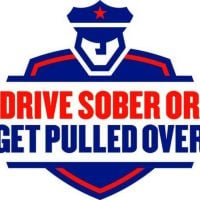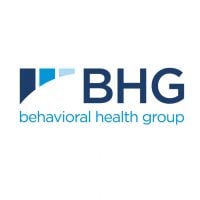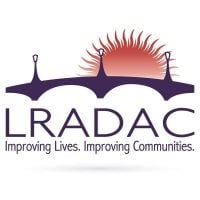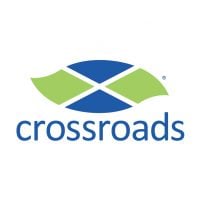Axis I Center
Drug Rehab Center in Barnwell, South Carolina
Axis I Center is an accredited treatment center in Barnwell, South Carolina that offers evidence-based treatments and services for alcoholism, substance abuse, opioid addiction, and dual diagnosis, including family, group, trauma, and individual therapy, as well as aftercare and referral services.
About Axis I Center in South Carolina
Axis I Center, situated in Barnwell, South Carolina, is a renowned substance abuse treatment and prevention facility that serves as the county's sole provider of these essential services. With a rich history of being the legislated authority on substance abuse for Barnwell County, Axis I Center has established itself as a beacon of hope for those seeking recovery.
• CARF accredited, ensuring adherence to rigorous standards of care and professionalism
• Specializes in treating Alcoholism, Substance Abuse, Opioid Addiction, Dual Diagnosis, Drug Addiction, and Mental Health issues
• Offers personalized treatment plans tailored to each individual's unique needs
• Provides a range of services, including Outpatient programs, Dual-Diagnosis treatment, Intervention services, and Detoxification
Axis I Center's commitment to excellence is evident through its CARF accreditation, a prestigious recognition from the Commission on Accreditation of Rehabilitation Facilities. This accreditation demonstrates the center's dedication to providing high-quality, evidence-based treatment services to individuals struggling with addiction and mental health challenges.
At Axis I Center, a wide range of addictions and mental health issues are addressed, including Alcoholism, Substance Abuse, Opioid Addiction, Dual Diagnosis, Drug Addiction, and Mental Health disorders. The center offers various levels of care, such as Outpatient programs, Dual-Diagnosis treatment, Intervention services, and Detoxification, ensuring that each individual receives the appropriate level of support and care throughout their recovery journey.
The dedicated team at Axis I Center employs evidence-based treatment methods, including individual and group therapy, counseling, and holistic approaches, to help individuals overcome their struggles and achieve lasting recovery. By providing a compassionate and supportive environment, Axis I Center empowers individuals to reclaim their lives and build a foundation for a brighter future.
Genders
Ages
Modality
Additional
Accreditations

CARF
The Commission on Accreditation of Rehabilitation Facilities (CARF) is a non-profit organization that specifically accredits rehab organizations. Founded in 1966, CARF's, mission is to help service providers like rehab facilities maintain high standards of care.
Conditions and Issues Treated
It’s not easy getting sober on one’s own, or even going to rehab and escaping the grasp of addiction by oneself. Substance abuse treatment gives addicts a place to stay sober while learning what it takes to quit for good. They will learn from others about what works and what doesn’t work with remaining drug-free.
Treatment centers such as Axis I Center focus on the needs of individual addicts to heal them. There is a combination of physical and mental therapies that treat the root cause of the addiction, whether it be family problems, stress, or past traumatic events.
The final benefit of substance abuse treatment is introducing new people who can help in your recovery after you leave Axis I Center. Through group therapy sessions with other addicts and attending support meetings once a day, a person will learn how to interact with others and cope with cravings. This is a chance for you to rebuild your social circle healthily after you leave treatment.
Opioid addiction starts when a person becomes addicted to legal or illegal opioids. The addiction can happen quickly, in just a matter of days. Opioid withdrawal can be extremely uncomfortable and lead the user to continue to use even if they want to quit. Stopping using an opioid requires medical observation. Sometimes inpatient treatment with a medically supervised detox is necessary for managing the withdrawal process while learning lasting tools for maintaining recovery. Medications may be used in some cases of opioid addiction.
Opioid addiction is one of South Carolina‘s most prominent forms of addiction. It’s treated by detoxifying the body so that the chemicals from the medications no longer impact them and by therapies to correct behavior and target the root of the problem.
Recovery is not simply about stopping drug use. Recovery is working with addiction while recovering mental health issues that are fueling the addiction in the first place.
Levels of Care Offered
This center offers a variety of custom treatment tailored to individual recovery. Currently available are Dual-Diagnosis, Intervention, Outpatient, with additional therapies available as listed below.
Outpatient treatment is considered the lower intensity level of addiction treatment. It’s ideal for early phase addiction or lower intensity addictions. It may include weekly sessions instead of daily. It may include weekly sessions instead of daily. Peer group support, 12-step programs, and individual counseling may still be involved but at a lesser frequency than an intensive outpatient program. It is a good choice for someone who doesn’t need to go through a medically supervised detox and who has a supportive home environment. It requires motivation and dedication to commit to the program without constant monitoring.
Not everyone dealing with addiction is prepared to engage in a recovery program. Axis I Center‘s Intervention Programs can be beneficial for these individuals. The individual’s friends and family will call and set up an intervention in or near Barnwell, SC, and at which a specialist will come and lead the discussion.
Therapies & Programs
Individual therapy involves one-on-one sessions between the patient and therapist. It provides patients with a safe environment to openly discuss personal and sensitive issues with the therapist. They find the therapist as someone they can trust. Individual therapy aims to identify the core issues that would have led the patient to substance abuse and address them effectively. The therapist can develop patient-specific customized solutions through individual therapy, which aids speedier recovery.
Family therapy is a group problem-solving that aims to improve communication and relationships between the addict, their family, and sometimes friends. The main goal of family therapy for drug addiction is to create an environment where communication can occur without judgment, hostility, or blame. The therapist is with the family as they learn to communicate differently, especially with the addict when s/he is using. The family can learn to reduce their enabling behavior or rally together and support each other during tough times.
An addict’s family can play a vital part in helping them to avoid relapse because they can spot the warning signs and help them get back on track before it becomes too much of a problem. Family therapy is one of the most effective ways to help addicts stay on the path to long-term sobriety. When a drug addict decides that they want to try and get sober, it takes the support of every person they love to succeed. It can be incredibly difficult for loved ones to watch an addict go through the pain and suffering of withdrawal, but by being there with them and supporting them, they can help to make sure that the addiction never returns.
Groups typically involve meetings with other recovering addicts who can relate to one another’s experiences. They might meet in person or online and typically focus on the process of staying sober rather than overcoming a specific addiction.
In these groups managed by Axis I Center, addicts can build a sense of community and develop strong emotional connections with others who understand what they are going through. These beneficial relationships can help addicts overcome their cravings and prevent relapse at any point during the recovery process.
In general, trauma therapy is a clinical process that helps individuals deal with mental stress often caused by traumatic events. The therapist helps the person identify, understand, and work through the problem. This is done with the help of talking about it in group or one-on-one counseling sessions. Therapists use relaxation, role-playing, art, and music to help the person open up about what is bothering them.
There are many different types of trauma therapists, such as psychiatric nurses and counselors. Not everyone is a good candidate for this type of therapy; it is generally reserved for people who have recently experienced a traumatic event and struggle to get over it. It is often done for children, teenage victims of sexual assault, and war veterans.
Since addiction is a chronic physical and mental illness, addicts need to learn as many life skills as possible. Many drug treatment centers offer life skills activities as part of their addiction recovery programs. Examples include cooking classes, employment training, resume writing seminars, parenting classes, and computer training. Life skills activities help addicts find employment, take care of their families, and give back to the community.
The goal of medical nutrition therapy for drug and alcohol addiction is to help patients avoid “trigger” foods. For example, someone who craves alcohol may be addicted to sugar. Making sure this person eats a balanced diet with recommended amounts of protein, vegetables, and fruit can help manage urges to drink.
Nicotine replacement therapy treats nicotine addiction using external sources of nicotine, such as patches or gum to substitute for nicotine. This allows people trying to quit smoking to get their desired dose of nicotine without actually having to smoke cigarettes. The idea behind NRT is that by providing smokers with nicotine in forms that are not cigarettes, they may be more likely to quit smoking.
NRT has been available for many years now, and there is a wealth of evidence that shows that it helps people trying to quit smoking. There are several different types of NRT devices on the market now. Patients interested in quitting smoking should talk to their doctors about the best kind of NRT for them.
Payment Options Accepted
For specific insurance or payment methods please contact us.
Is your insurance accepted?
Ask an expert, call (888) 674-0062
Additional Details
Specifics, location, and helpful extra information.
Barnwell, South Carolina 29812 Phone Number(803) 541-1245 Meta DetailsUpdated April 15, 2024
Staff Verified
Axis I Center Patient Reviews
There are no reviews yet. Be the first one to write one.
Barnwell, South Carolina Addiction Information
More than 610,000 of South Carolina residents, or a staggering 11.9% of the state population, uses illicit drugs and another 230,000 residents abuse alcohol every year. A majority of the illegal drugs used and abused are opioids. Marijuana use and underage drinking occur amongst the young residents of this state–though at a lower rate compared to the national average.
Treatment in Nearby Cities
- Winnsboro, SC (80.2 mi.)
- Hemingway, SC (116.1 mi.)
- Aiken, SC (29.9 mi.)
- Easley, SC (130.5 mi.)
- Chester, SC (101.3 mi.)
Centers near Axis I Center
The facility name, logo and brand are the property and registered trademarks of Axis I Center, and are being used for identification and informational purposes only. Use of these names, logos and brands shall not imply endorsement. RehabNow.org is not affiliated with or sponsored by Axis I Center.










